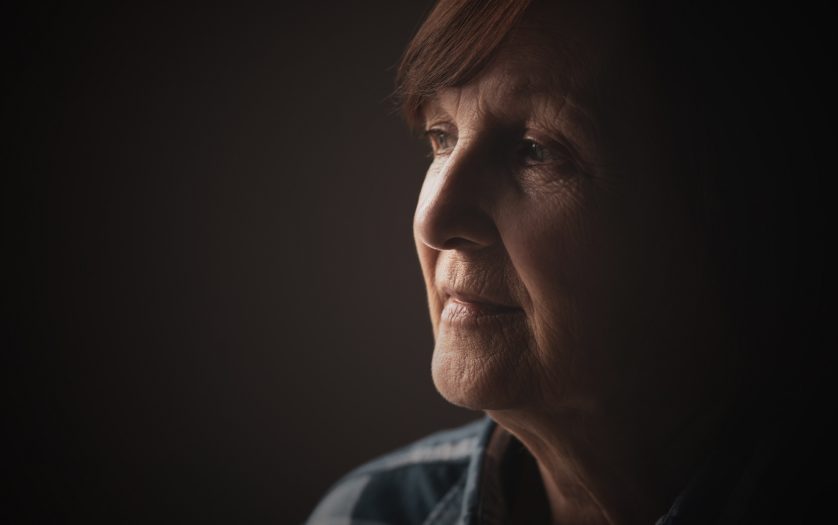
The first academic evidence of how the cost of living crisis is impacting people with dementia has been published in the journal Aging and Mental Health, showing people were forced to reduce how much they use social care and support services because of cost.
The paper – funded by Alzheimer’s Society and the National Institute for Health and Care Research – shows of the people with dementia using social care, one fifth reported that they cut down how much they used to save money.
Analysis of the data by Dr Clarissa Giebel, at the University of Liverpool’s Institute of Population Health, found that this was particularly true for people with dementia from non-white ethnic backgrounds. The findings also showed men struggled more than women to pay for care.
Dementia – affecting 900,000 people across the UK – is one of the main causes of disability later in life, ahead of cancer, cardiovascular disease and stroke. Two-thirds of care costs are being paid by people with dementia and their families, unlike those with other conditions that are treated by the NHS. In recent months costs for people with dementia have spiralled with fees rising on average £23 a week for residential care, home care and day care. If the rise continues, families could face increases of up to £1,200 a year (2).
The original data – collected by Alzheimer’s Society – which the analysis is based on, shows the cost of living crisis is squeezing the finances of people with dementia further – with one in four households struggling to pay their utility bills, and one in five even struggling to pay for food and drink. 16% reported difficulties in paying for social care services (2).
Senior Research Fellow at the University of Liverpool’s Institute of Population Health Dr Clarissa Giebel, who led the study, said: “A key research priority for the University of Liverpool is to improve the lives of people through all stages of their life. This latest analysis illustrates that if people with dementia fail to access these services, they are more likely to deteriorate faster and enter residential long-term care, which is less affordable than community-based care and the heaviest cost factor of the dementia trajectory. In addition, without the social care support to keep well and independent at home, people are more likely to utilise health care services and reach crisis point with their health.
“After the COVID-19 pandemic, the cost of living crisis generates new barriers and underscores the need for systemic changes and support for people with dementia to access care within their community.”
Prior to the cost of living crisis, there were already inequalities for people from minority ethnic backgrounds trying to access dementia care – both due to cultural stigma, as well as due to services often not being set up to accommodate culturally-specific religious, language, and dietary needs (4). The new analysis shows a statistically significant greater risk of people from non-white ethnic backgrounds struggling to pay for care. With Black and South Asian people with dementia dying sooner after a dementia diagnosis compared to white people (5), it is particularly vital these communities have access to post-diagnostic support.
Tim Beanland, Head of Knowledge at Alzheimer’s Society, which supported the research, said: “The rising cost of living is putting people with dementia in impossible situations – and facing potential hikes of over a thousand pounds a year for essential care. Something has to give. It’s particularly worrying to see the extra risk people with dementia from non-white ethnic communities face, who we know are already struggling to get a diagnosis and access culturally-appropriate care.
“First the pandemic, and now the cost of living crisis underline more than ever how much we need a long-term solution to fix our broken care system. Only then can everyone with dementia – no matter their ethnicity – get the quality, affordable care they deserve.
“If you or a loved one needs help, call Alzheimer’s Society’s support line or visit our website – our Dementia Advisers are just a phone call away.”
Louise Woollam, a flight attendant from Shillingstone, Dorset, faces the additional burden of funding care costs for her partner Richard, who is living with dementia, so she can continue working.
Louise said: “I can’t earn enough to cover the fees while I’m working, but I can’t give up my job to care for him myself as I could not exist on Carer’s Allowance. At 59, I still need to pay into my own pension, so it’s a Catch 22 situation.”
Living fees have risen by an average of £23.20 per week (£1,206.40 a year) for people with dementia in sheltered housing, supported living, a residential care home or nursing home, with more than one in ten (11%) facing a weekly rise of more than £40 (more than £2,000 a year).
Meanwhile, fees for support services such as private home care services, support groups, and day care for people with dementia have increased by an average of £22.91 per week (£1,191.32 a year), with one in seven (13%) facing a weekly rise of more than £40.
If you are affected by dementia and need help through the cost-of-living crisis, call Alzheimer’s Society’s support line on 0333 150 3456 or visit alzheimers.org.uk/costofliving








